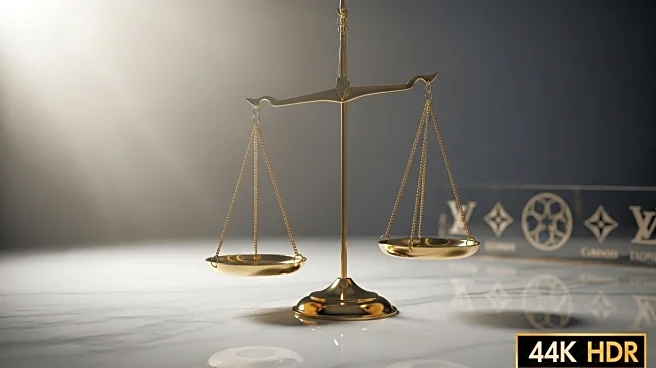What's Happening?
The UK Supreme Court has issued a ruling that could significantly impact how luxury brands in the U.S. approach trademark protection. The case involved Dream Pairs, an online footwear retailer, which was accused by Umbro's parent company, Iconix, of using a logo similar to Umbro's 'double diamond' mark. The court sided with Dream Pairs, stating that the logos were not similar enough to cause confusion. However, the ruling emphasized the importance of post-sale confusion, where trademarks continue to signal origin beyond the point of purchase. This decision highlights the legal significance of how products are perceived in public and online settings, rather than just at checkout.
Why It's Important?
This ruling is crucial for U.S. luxury brands as it underscores the importance of protecting brand image in post-sale contexts. In industries like fashion, where brand prestige and recognition are vital, the ability to enforce trademark rights beyond the point of sale can help maintain brand integrity. The decision provides brands with a powerful tool to combat lookalike products that may not deceive buyers at purchase but can mislead observers afterward. This could lead to stricter enforcement strategies and influence how brands design and market their products, ensuring they are not only distinct at checkout but also in real-world settings.
What's Next?
Luxury brands in the U.S. may need to reassess their trademark enforcement strategies in light of this ruling. They might consider focusing more on how their products are perceived post-sale, especially in social media and public settings. Legal teams could start developing new approaches to protect brand image and prevent post-sale confusion. Additionally, this ruling may prompt discussions among U.S. lawmakers and courts about adopting similar principles, potentially leading to changes in trademark law that prioritize brand perception beyond the initial purchase.
Beyond the Headlines
The ruling raises questions about the balance between consumer protection and brand control. Critics argue that post-sale confusion often protects brand prestige rather than the core function of trademarks, which is to identify the source of goods. This could lead to debates about whether such legal doctrines give brands excessive power to suppress competition. The decision may also influence cultural perceptions of brand authenticity and the value of original versus lookalike products, affecting consumer behavior and industry practices.









